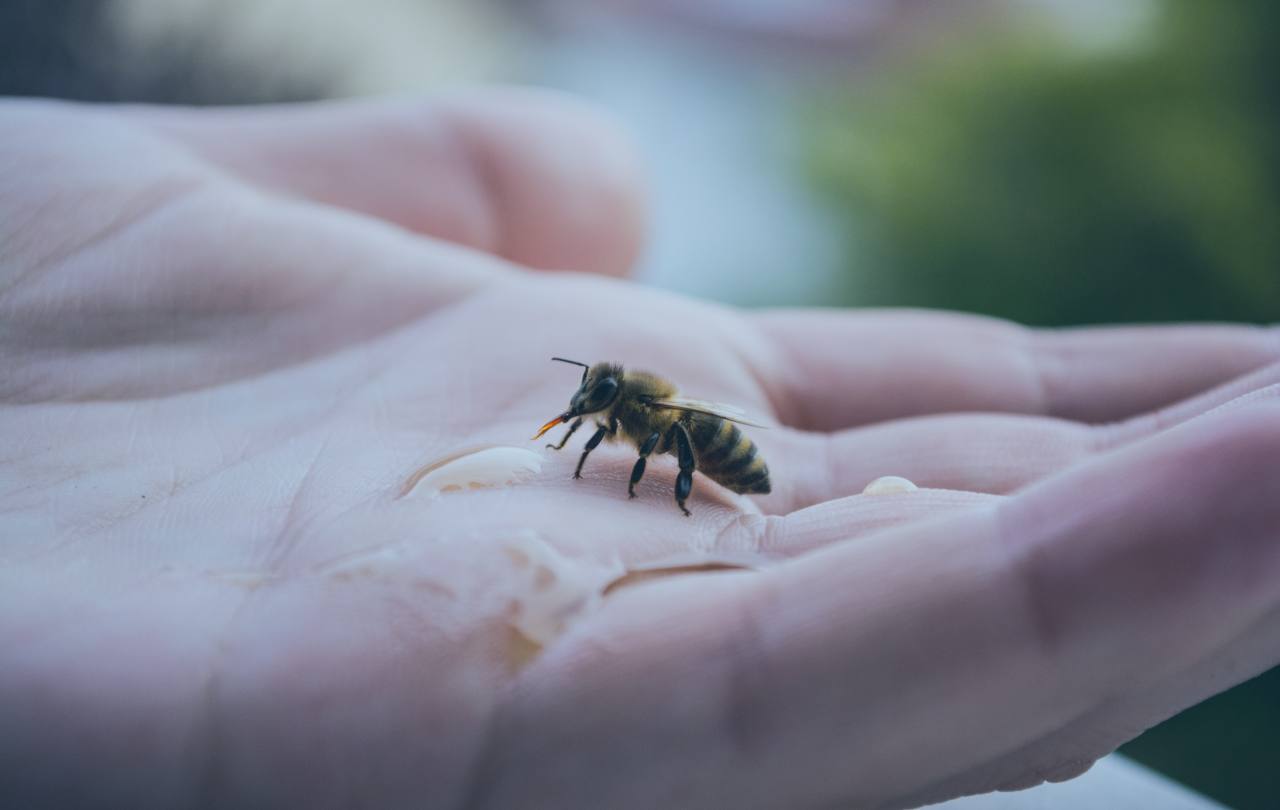
There is an increasing recognition of the power of meditation as a practice that promotes well-being. It is even being suggested as a tool, alongside others, for managing anxiety, depression and the other mental health related symptoms of our time.
Meditation doesn’t have to have a religious dimension to it, although it is a practice that has been found in all religious traditions, including Christianity, for centuries. The ‘techniques’ of meditation are very similar, whether used by someone who is religious or not. Meditation, at its most basic, requires us to attend to our body, hearing and calming our heart beat and our breathing, noticing the areas of tension and even pain in our body, finding a posture that can be maintained with comfort but without sloppiness for a period of time.
The daily life of the bee
It also requires us to notice the moment we are in: to hear the regular sounds around us, to see the way in which light falls through the window, or from a candle flame, to see the fly or the bee, getting on with daily life. Deliberately, we do not try to control these things, or allow our busy minds to tell stories about them, or try to rearrange them in any way: we simply give them our attention.
Although this sounds easy it is surprisingly hard, to begin with. It makes us realise how inattentive we usually are, how hard we find it to be still, how little our minds are accustomed to concentration, more used to veering wildly from one topic to another. Meditation helps us to notice this, not by asking us to do the impossible, and force our minds to emptiness, but by gently, firmly, taking each thought as it flits across our brain, and putting it down again, returning our attention to breathing, to space, to the moment we are in.
As we continue the practice, we will probably notice patterns in our distracting thoughts, habits of worry, or self-obsession or annoyance or fantasy; we will begin to notice the depth of the channel these kinds of thoughts have dug in us, but also begin to be able to redirect the channels, and put new ones in place, channels of attention, peacefulness, gentleness to ourselves and the world.
A different dimension
We don’t need any religious explanation to see why such practices ‘work’ for us, who are complex and interdependent beings, who can never separate out mind, body, spirit; meditation teaches us how to attend to our wholeness. But as a Christian theologian, I can’t help seeing another dimension to meditation, which might give a different kind of account of what is going on when we meditate.
As a Christian, I know myself to be a ‘creature’, a being made by God, not by accident, not to fulfil some lack in God, not to perform any tasks that God needed done, but simply because God’s overflowing love and creativity calls into being a universe and gives it freedom, agency and creativity of its own. God creates what is genuinely not God, and God loves what is created. That means that the complex interaction of all the processes, mental and physical, that make us human beings are gift, and meditation focuses us on this giftedness, it asks us to trust ourselves and our world as, at the deepest level, beneficent, meaning well to us. However much the world may have the power to damage us, and we to damage ourselves and each other, that is not its first and most basic effect: as we meditate, simply attending to the moment, we are blessed.
Christian mediation also assumes that as in meditation we attend to the moment, we are also being attended to. We are not just learning to see and hear where we are, but also learning that we are seen and heard. In our crowded lives and over-busy minds, God is still present and attentive, but there are so many distractions and barriers that prevent us from noticing and receiving the loving, patient, healing attention of God. Meditation as the ‘practice of the presence of God’, might help us see why it is such a powerful habit, because it opens in us a space to receive ourselves again from the one who made us in love, the one who came to live a human life to fill our created reality with the generosity of the Creator, the one who prays in us, endlessly, wordlessly, joyfully, that we are beloved, known, invited and set free.





